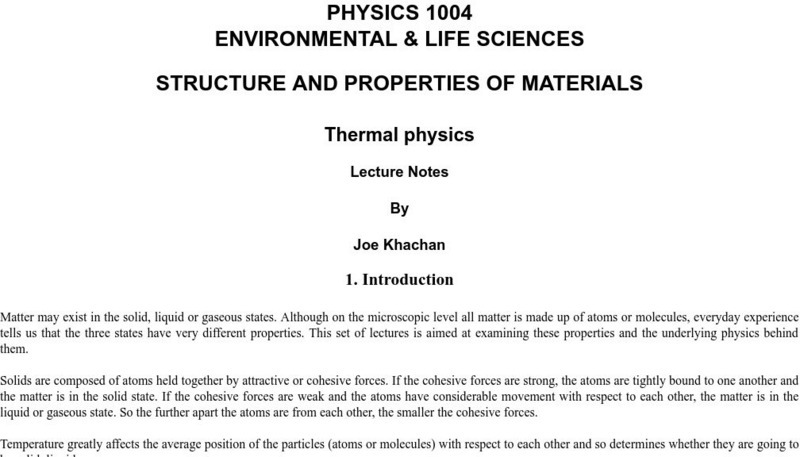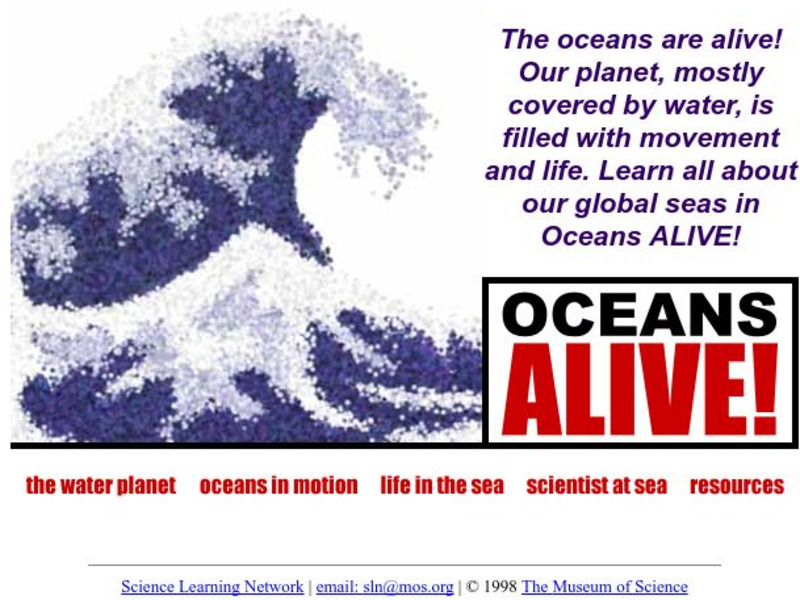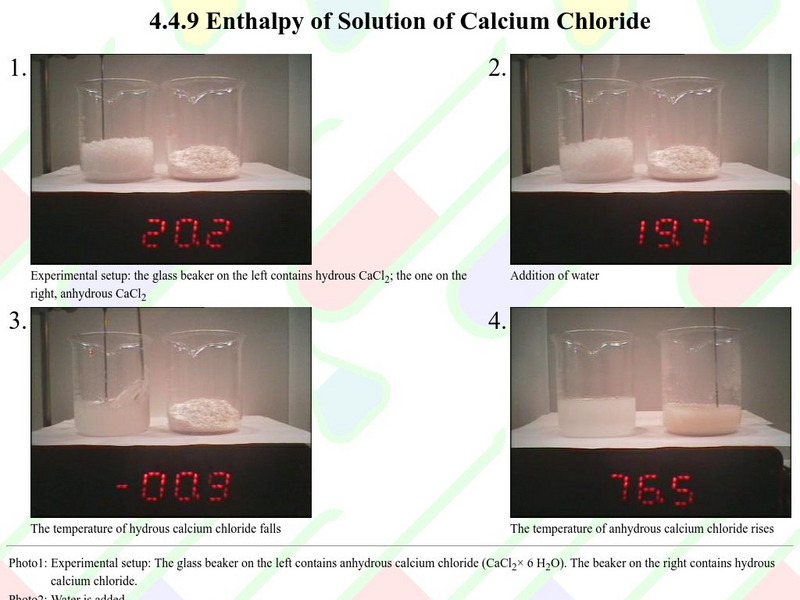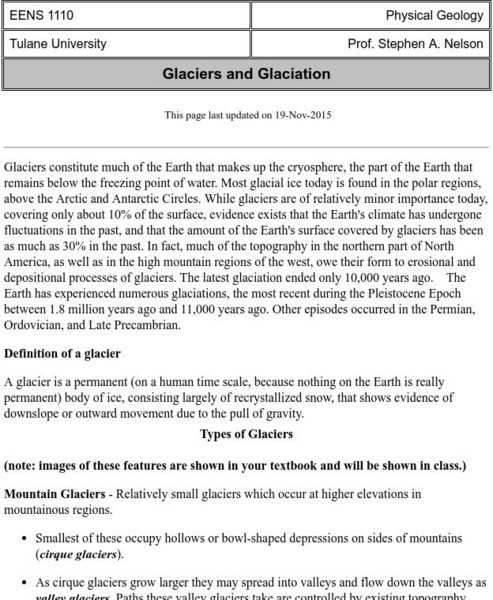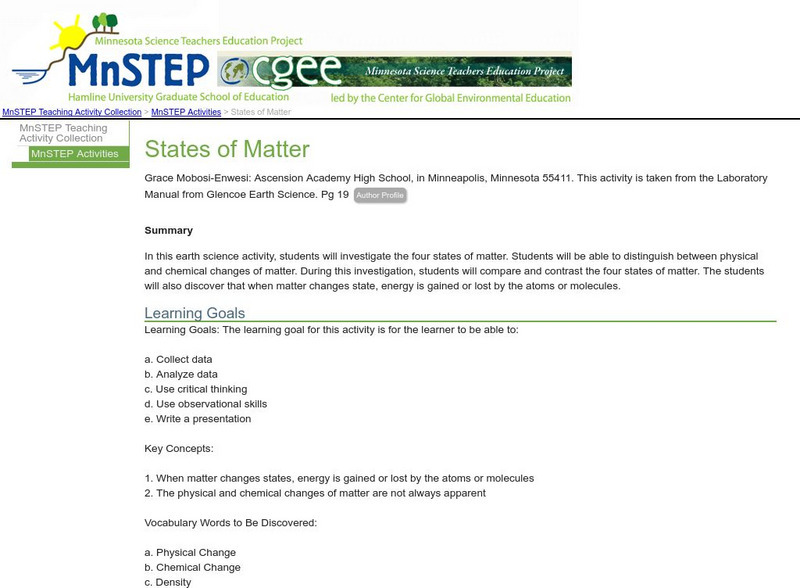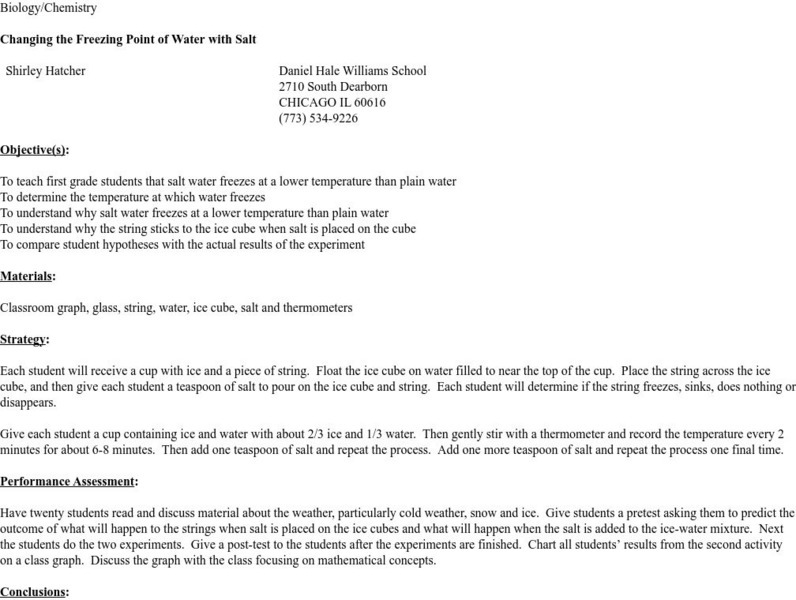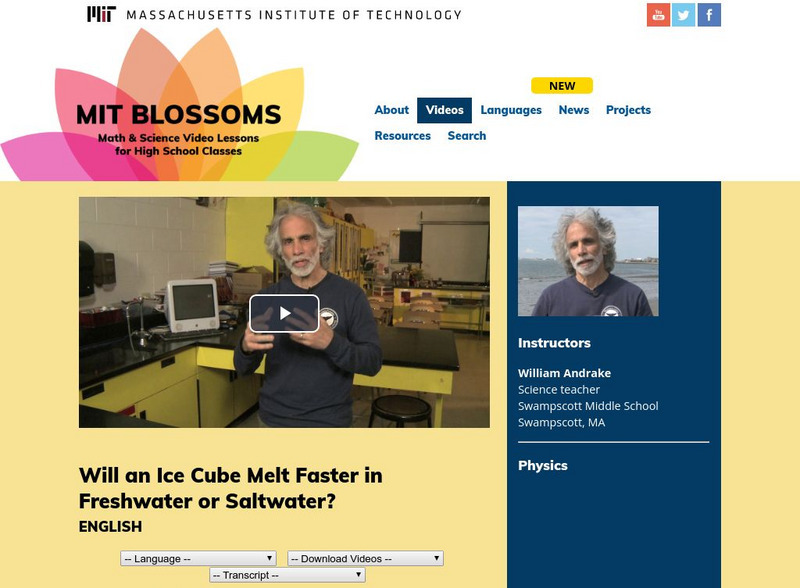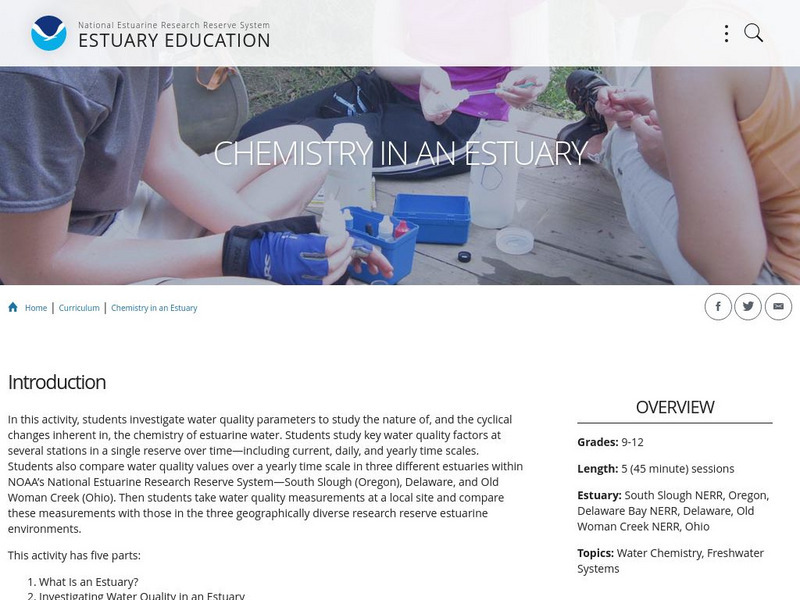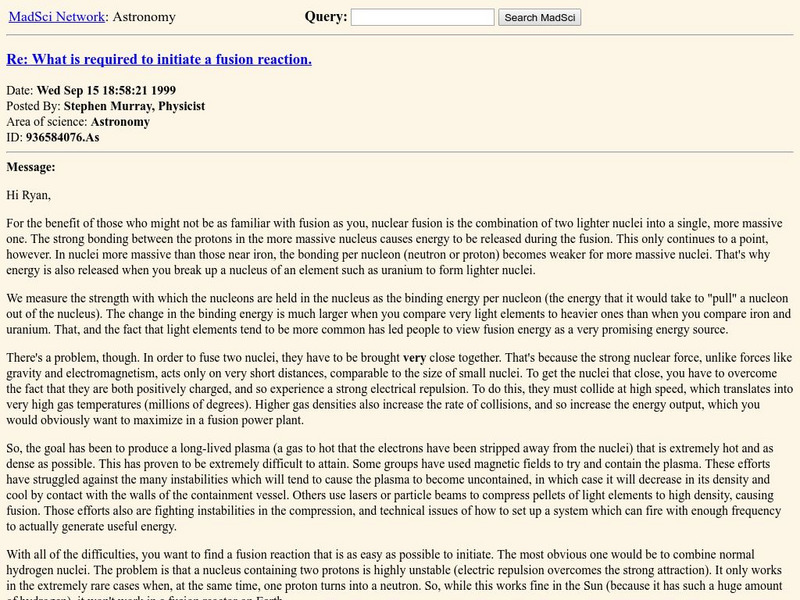Hi, what do you want to do?
Chem Tutor
Chem Tutor: States of Matter
A very descriptive site that allows students to understand the different states of matter at the atomic level. Also discusses the process of phase changes and displays phase change graphs. Thermochemistry is also touched upon for high...
University of Sydney (Australia)
University of Sydney: Structure and Properties of Materials/thermal Physics
An exhaustive set of "lecture notes" on various topics in thermal physics (including thermal expansion). Explanations are well done and more interesting than most. Includes both a mathematical and conceptual treatment of topics. Humor,...
Museum of Science
Museum of Science: Oceans Alive
There are links to the water planet, oceans in motion, life in the sea and resources. You will learn about the physical features of an ocean, changes in the ocean and the water cycle.
Center of Science and Industry
Cosi Columbus: A Swell Activity With Beans [Pdf]
Learn about absorption in this hands-on science experiment. Includes full list of materials, procedures, and scientific explanation of what happens to different types of beans as they soak in water in a test vial.
Other
University of Siegen: Enthalpy of Solution
This resource provides a physical reaction. Hydrous and anhydrous calcium chloride react with water to produce physical exothermic and endothermic reactions.
CK-12 Foundation
Ck 12: Physical Science: Boiling
A module reviewing over how vaporization occurs and its difference from evaporation. Also, review over the definition of boiling point. Module includes a video, pictures, explanation, and review questions.
Other
Tulane University: Physical Geology: Glaciers and Glaciation
Lots of information here about glaciation, types of glaciers, the formation of glacial ice, changes in glacier size, how glaciers move, glacial erosion, landforms produced by glaciers, glacial deposition and drift, effects of glaciation...
Science Education Resource Center at Carleton College
Serc: Mn Step: States of Matter
In this activity, students investigate physical and chemical changes in the states of matter for water. They collect data and record their observations.
Science and Mathematics Initiative for Learning Enhancement (SMILE)
Smile: Changing the Freezing Point of Water With Salt
This lesson plan teaches first grade pupils basic chemistry and physics principles--that saltwater freezes at a lower temperature that plain water.
Physics Aviary
Physics Aviary: Guided Specific Heat Lab
This lab is designed to have students learn how to calculate the specific heat of a liquid based on the temperature changes that occur when hot water is added to the liquid.
CK-12 Foundation
Ck 12: Physics Simulation: Electric Ice Sheet
Balance electric charges to prevent Tommy from slipping into icy water. You are presented with 4 particles, each with a charge value. Using the plus/minus scrollbar, you can change the value of the highlighted charge. Then press the play...
Physics Aviary
Physics Aviary: Guided Specific Heat of Solid Lab
This lab is designed to have students learn how to calculate the specific heat of a solid based on the temperature changes that occur when a hot solid is added to cold water.
University of Maryland
University of Maryland: Boiling Water by Pumping
A page from the University of Maryland Physics Lecture Demonstration Facility. Provides directions for a teacher demonstration which utilizes a Bell jar and vacuum pump to show the dependency of boiling point upon pressure. Shows...
Physics Central
Physics Central: Physics in Your Glass: Racing Molecules
An easy experiment for demonstrating and exploring molecule movement requiring common household items: two glasses, two dark colors of food coloring, and warm and cold water. A few variations to the experiment will have students using...
American Association of Physics Teachers
Com Padre Digital Library: Open Source Physics: Atwood Machine in Fluid Model
Simulation of an Atwood machine where two masses of varying densities are suspended in water using a pulley system. Adjust the densities of the masses, their positions and the water level to see how the changing gravitational, buoyant,...
TeachEngineering
Teach Engineering: How Cold Can You Go?
Students explore materials engineering by modifying the material properties of water. Specifically, they use salt to lower the freezing point of water and test it by making ice cream. Using either a simple thermometer or a mechatronic...
Massachusetts Institute of Technology
Mit: Blossoms: Will an Ice Cube Melt Faster in Freshwater or Saltwater?
Engage students in the study of the ocean and saltwater with these activities. Students will see that saltwater has different physical properties than freshwater - mainly density. This lesson can serve as a springboard into other...
Children's Discovery Museum
Children's Discovery Museum of San Jose: Ice Exploration
Provides fun ideas for exploring how to transform ice using shapes, light, and color.
NOAA
Noaa: Estuaries 101 Curriculum: Chemistry in an Estuary
This activity introduces students to the complex chemistry of estuarine water. Students investigate how chemical and physical water quality factors-pH, temperature, dissolved oxygen, and salinity-change and interact over varying time...
Cosmo Learning
Cosmo Learning: The Atmosphere, the Ocean, and Environmental Change
A collection of video lectures from a course that explores the physical processes the control Earth's atmosphere, ocean, and climate that is taught at Yale University. The course covers topics like clouds, rain, severe storms, regional...
University of Maryland
U. Of Maryland: Latent Heat: Ice to Water to Steam
A page from the University of Maryland Physics Lecture Demonstration Facility. Provides directions for a teacher demonstration of latent heat in the melting and vaporization process. Shows apparatus and set-up; provides suggestions....
Alabama Learning Exchange
Alex: Race for Life: Plant Adaptations
This is an outdoors, hands-on activity. Create a short race course to engage students in physical activity while drawing comparisons to the plant kingdom. This activity serves as an introductory to the impact small changes can have on...
Other
The Hydrological Cycle an Human Impact on It. [Pdf]
The hydrological cycle is usually called a recurring consequence of different forms of movement of water and changes of its physical state on a given area of the Earth. The role of different processes in the hydrological cycle and their...
MadSci Network
Msn: What Is Required to Initiate a Fusion Reaction?
From the Mad Scientist Network web site. Using a question and answer format, this page provides a thorough discussion of fusion reactions. Fusion and fission are compared and contrasted and the mechanisms which must occur to initiate and...






